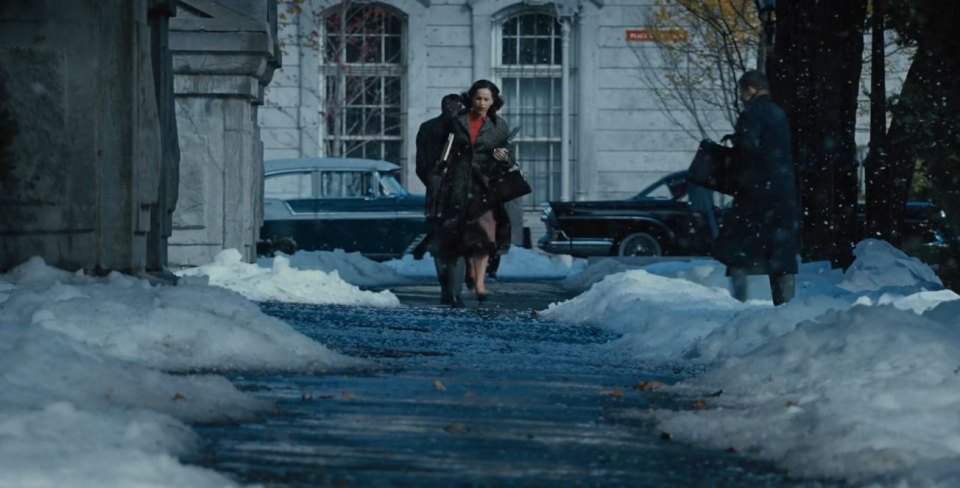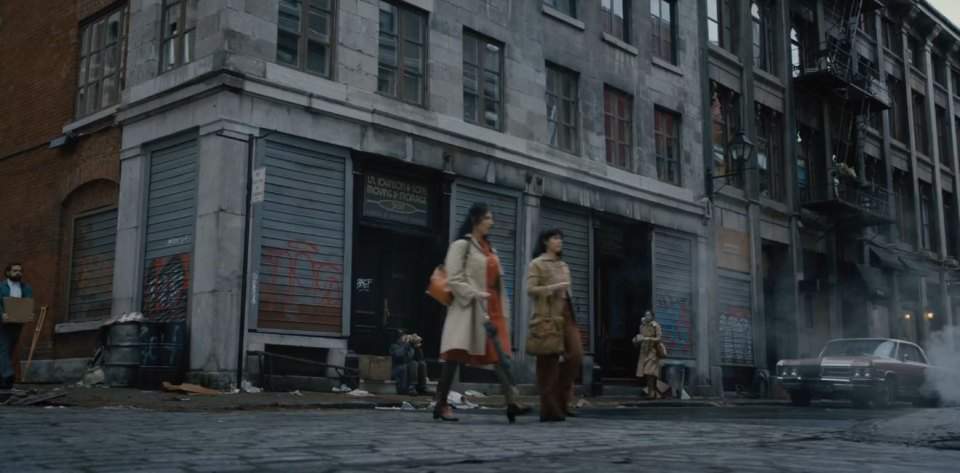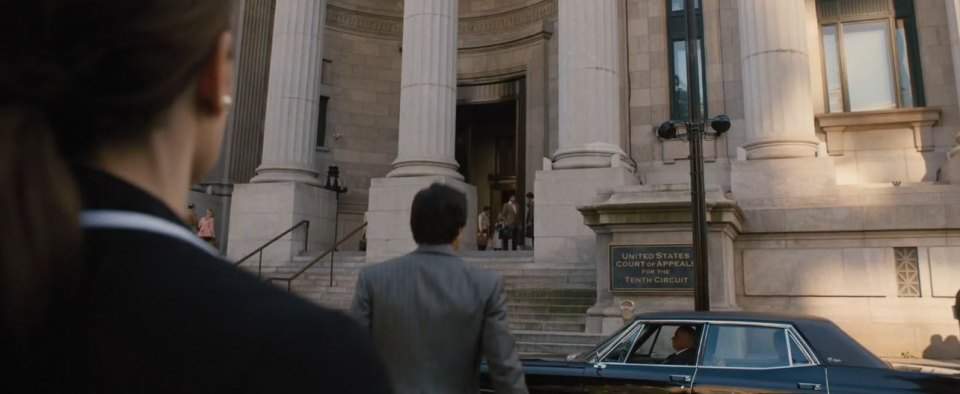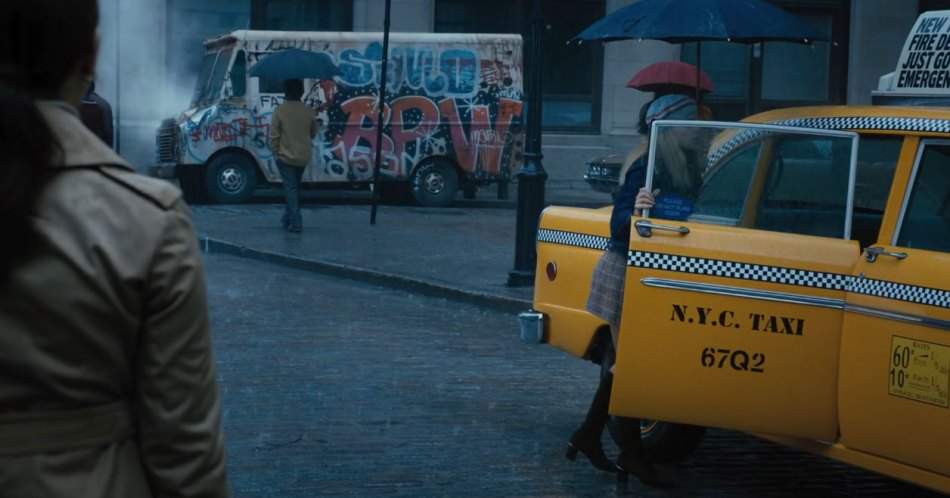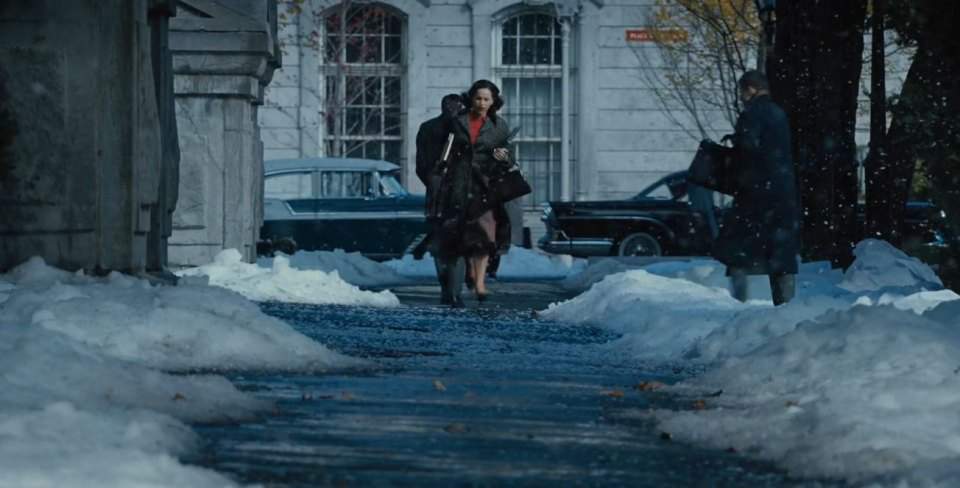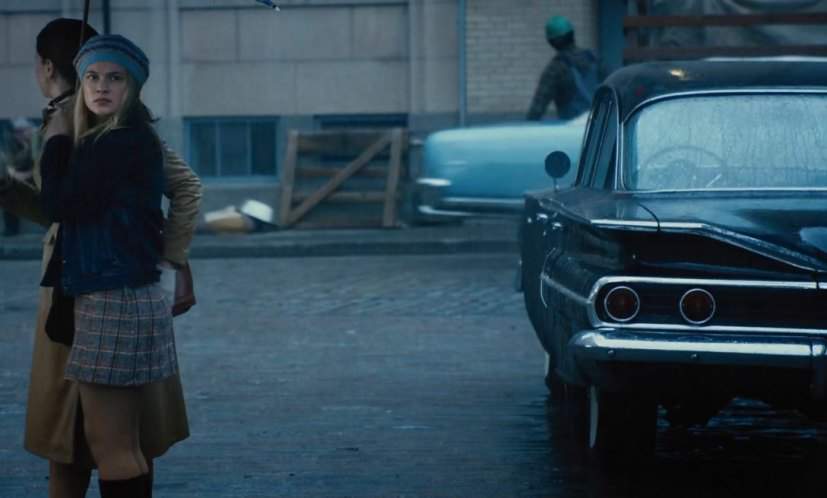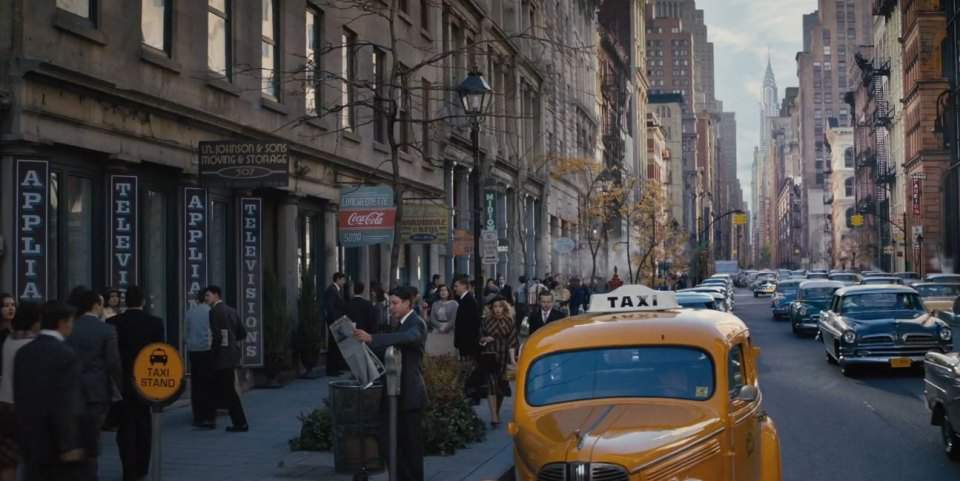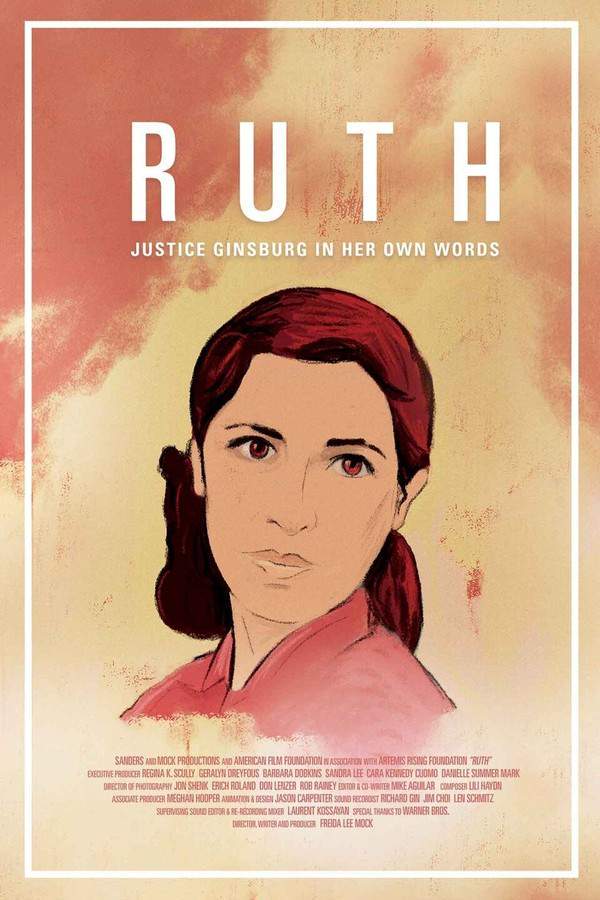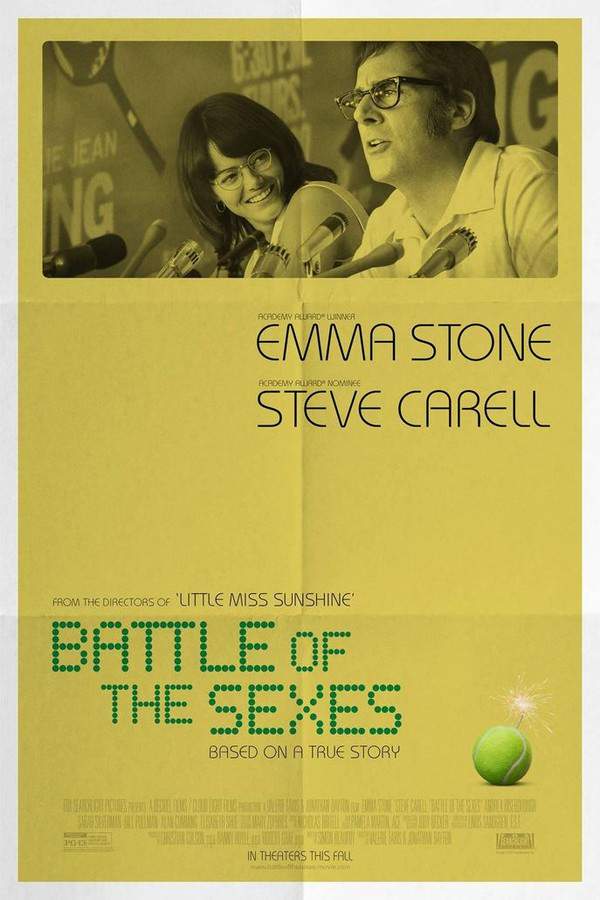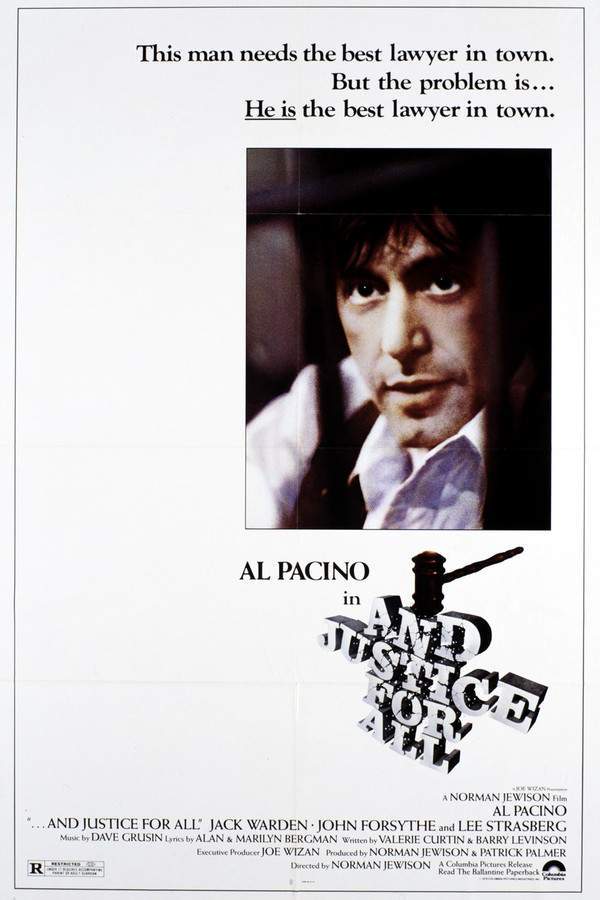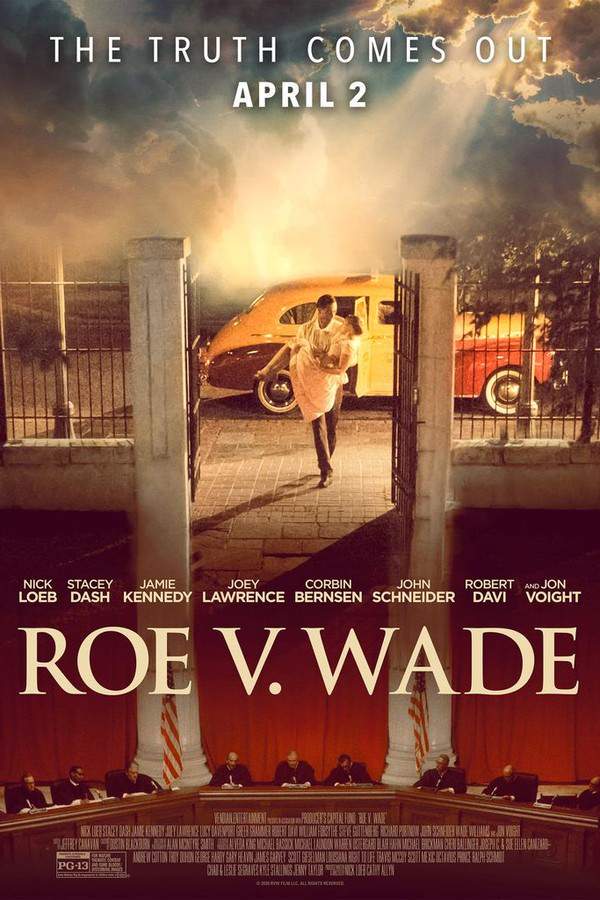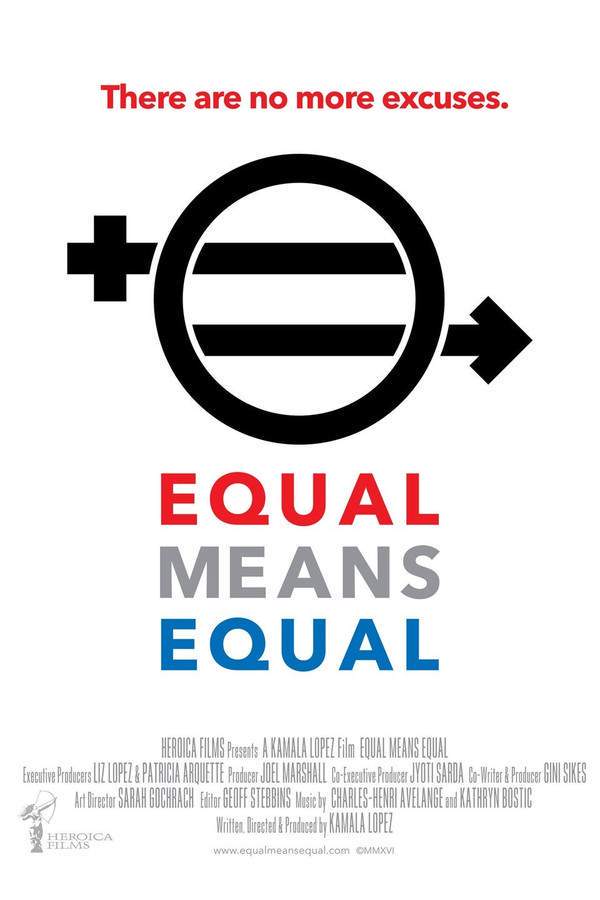On the Basis of Sex 2018
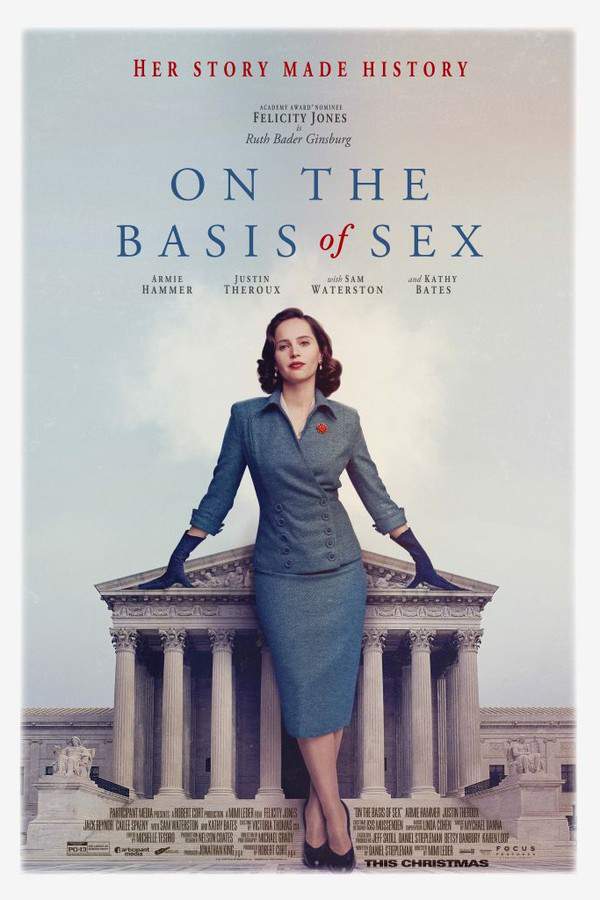
Ruth Bader Ginsburg, a young lawyer and mother, challenges societal norms and confronts personal and professional obstacles while fighting for gender equality. Alongside her husband, Martin, she takes on a pivotal tax case that has the potential to fundamentally alter the legal system and establish her legacy as a champion for women’s rights. The case becomes a catalyst for a broader legal battle against gender discrimination.
Does On the Basis of Sex have end credit scenes?
No!
On the Basis of Sex does not have end credit scenes. You can leave when the credits roll.
Meet the Full Cast and Actors of On the Basis of Sex
Explore the complete cast of On the Basis of Sex, including both lead and supporting actors. Learn who plays each character, discover their past roles and achievements, and find out what makes this ensemble cast stand out in the world of film and television.

Jack Reynor
Jim Bozarth

Justin Theroux
Mel Wulf

Armie Hammer
Martin Ginsburg

Felicity Jones
Ruth Bader Ginsburg

Sam Waterston
Erwin Griswold

Chris Mulkey
Charles Moritz
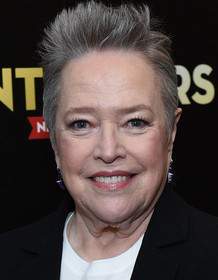
Kathy Bates
Dorothy Kenyon

Stephen Root
Professor Brown

Gabrielle Graham

Cailee Spaeny
Jane Ginsburg

John Ralston
Tom Miller

Ruth Bader Ginsburg

Angela Galuppo
Emily Hicks

Dawn Ford

Francis X. McCarthy
Judge Daugherty

Gary Werntz
Judge Doyle

Michael Dickson

Ronald Guttman
Gerald Gunther

Stephanie Costa
External Links and Streaming Options
Discover where to watch On the Basis of Sex online, including streaming platforms, rental options, and official sources. Compare reviews, ratings, and in-depth movie information across sites like IMDb, TMDb, Wikipedia or Rotten Tomatoes.
Ratings and Reviews for On the Basis of Sex
See how On the Basis of Sex is rated across major platforms like IMDb, Metacritic, and TMDb. Compare audience scores and critic reviews to understand where On the Basis of Sex stands among top-rated movies in its genre.

The Movie Echo Score
On the Basis of Sex delivers a respectful account of Ruth Bader Ginsburg’s early legal career, balancing inspiring moments with a conventional biopic structure. The film’s narrative effectively conveys the protagonist’s perseverance, though its narrow temporal focus and predictable pacing limit narrative surprise. Performances are generally solid, with the lead providing measured portrayal amid stronger supporting turns. While the technical execution and sensory design support the drama competently, neither element stands out. As a result, the production offers a meaningful yet familiar examination of a landmark figure.
The Movie Echo Score Breakdown for On the Basis of Sex

Art & Craft
The film’s technical execution is serviceable but unremarkable. Direction adheres to conventional biopic framing with measured camera setups and predictable editing rhythms. Production design captures the period detail accurately, although visual motifs seldom depart from familiar tonal palettes. The cinematography maintains clarity but lacks striking visual flourishes. Overall, the film’s craft supports the narrative without drawing particular attention.

Character & Emotion
When it comes to acting and emotional resonance, performances are generally solid but uneven. Felicity Jones delivers a measured portrayal that commands attention, yet some viewers found her interpretation constrained and lacking spontaneity. Armie Hammer and supporting cast members provide consistent support with moments of genuine chemistry, although emotional depth occasionally feels underexplored. As a result, character engagement remains moderate, sustaining interest without fully immersing the audience.

Story & Flow
In terms of plot coherence and pacing, the narrative follows a conventional biographical structure that highlights key legal battles with clarity but little innovation. Early segments establish the protagonist’s challenges effectively, yet the focus on a narrow time span limits broader thematic exploration. While the central arc maintains engagement, scenes of legal exposition sometimes slow momentum. Ultimately, the storyline offers an inspiring account of perseverance, albeit within familiar biopic conventions.

Sensory Experience
Regarding sensory elements, the film presents a clean audio mix and an unobtrusive score that supports dramatic moments without overwhelming them. Sound design maintains intelligibility during courtroom dialogues, though there are no standout auditory motifs. Visually, the production employs a consistent but muted color palette that evokes the period setting, yet it lacks distinctive stylistic flair. Overall, the sensory experience is functional and coherent, serving the story without sensory highlights.

Rewatch Factor
The rewatch factor is modest given the film’s straightforward approach. The inspiring true story and competent performances offer a degree of repeat appeal for viewers interested in legal history or biographical drama. However, predictable narrative beats and the absence of surprising stylistic elements may limit enthusiasm for multiple viewings. While the thematic importance of gender equality sustains relevance, the overall replay value rests primarily on the audience’s interest.

59
Metascore
6.7
User Score


72%
TOMATOMETER

76%
User Score

7.1 /10
IMDb Rating

74
%
User Score

3.5
From 175 fan ratings

3.00/5
From 10 fan ratings
Take the Ultimate On the Basis of Sex Movie Quiz
Challenge your knowledge of On the Basis of Sex with this fun and interactive movie quiz. Test yourself on key plot points, iconic characters, hidden details, and memorable moments to see how well you really know the film.
On the Basis of Sex Quiz: Test your knowledge about the inspiring journey of Ruth Bader Ginsburg in her fight for gender equality.
What year did Ruth Bader Ginsburg attend Harvard Law School?
1950
1956
1960
1970
Show hint
Full Plot Summary and Ending Explained for On the Basis of Sex
Read the complete plot summary of On the Basis of Sex, including all major events, twists, and the full ending explained in detail. Explore key characters, themes, hidden meanings, and everything you need to understand the story from beginning to end.
In 1956, Ruth Bader Ginsburg, portrayed by Felicity Jones, embarks on her first year at Harvard Law School. While she diligently attends her own classes, she also takes on the responsibility of attending her husband Martin’s lectures, played by Armie Hammer, who is in his second year but has fallen ill due to cancer. Amidst her academic pursuits and caring for their infant daughter Jane, represented by Cailee Spaeny, Ruth shows remarkable resilience.
As the years pass, Martin’s cancer goes into remission, leading him to accept a position at a prominent firm in New York. However, Ruth faces an obstacle when she petitions Dean Griswold, a character portrayed by Sam Waterston, at Harvard to allow her to complete her law degree at Columbia Law School. To her dismay, he adheres strictly to university policies, prompting Ruth to transfer to Columbia instead. Even with her stellar academic performance, she struggles to secure a position at a law firm due to the prevalent gender biases of the era. Ultimately, she takes on a teaching role at Rutgers Law School, focusing on “Sex Discrimination and the Law.”
In 1970, Martin introduces Ruth to a pivotal case: Moritz v. Commissioner, concerning Charles Moritz, portrayed by Chris Mulkey. Moritz, a man who employed a nurse for his aging mother, finds himself denied a tax deduction that was unfairly awarded only to specific categories including women. Ruth seizes this moment to challenge gender discrimination through the legal system, believing that by setting a precedent for a man discriminated against, she can pave the way for future cases affecting women.
Determined, Ruth approaches Mel Wulf from the ACLU for assistance, but he initially declines. After some persuasion from activist Dorothy Kenyon, who transforms from skepticism to support, Ruth inspires Wulf to come on board. She then travels to Denver to meet Moritz, who agrees to allow Ruth and the ACLU to represent him pro bono, understanding the far-reaching implications of their case.
As the legal battle escalates, James H. Bozarth, portrayed by Jack Reynor, steps forward to lead the defense. He meticulously researches gender-related sections of the US Code, presenting a strong argument against the constitutionality of the existing law. Meanwhile, Ruth, lacking courtroom experience, grapples with anxiety during practice sessions. With Wulf’s encouragement, Martin takes the lead in the courtroom, while Ruth argues the equal protection aspects.
Amidst the proceedings, the government presents a meager settlement of one dollar to Moritz, which Ruth counters with a more substantial proposal: acknowledgment of the deduction claim with a declaration about the unconstitutional nature of the gender restrictions. Faced with refusals from the government, the case proceeds to the Tenth Circuit Court of Appeals.
During the oral arguments, Martin inadvertently allocates more time than planned to their position. Nervous yet determined, Ruth utilizes her rebuttal with clarity and conviction, arguing for the urgency to evolve laws alongside societal changes. She asserts, > “Societal roles that existed one hundred years ago, or even twenty years ago, no longer apply.” When challenged regarding the Constitution’s silence on “woman,” she boldly retorts that it also lacks the term “freedom.”
As they await the court’s decision, Ruth, the Ginsburgs, and Wulf share a moment of celebration, recognizing her transformative growth as a lawyer. The narrative concludes with triumphant titles revealing the Court of Appeals’ unanimous ruling in favor of Moritz. Ruth’s groundbreaking work leads to the co-founding of the Women’s Rights Project at the ACLU, dismantling numerous discriminatory laws, and in 1993, she is voted into an associate justice position on the U.S. Supreme Court. The film closes with the real Ruth Bader Ginsburg ascending the steps of the Supreme Court building, symbolizing her legacy in the fight for justice and equality.
Uncover the Details: Timeline, Characters, Themes, and Beyond!

Coming soon on iOS and Android
The Plot Explained Mobile App
From blockbusters to hidden gems — dive into movie stories anytime, anywhere. Save your favorites, discover plots faster, and never miss a twist again.
Sign up to be the first to know when we launch. Your email stays private — always.
Watch Trailers, Clips & Behind-the-Scenes for On the Basis of Sex
Watch official trailers, exclusive clips, cast interviews, and behind-the-scenes footage from On the Basis of Sex. Dive deeper into the making of the film, its standout moments, and key production insights.
Cars Featured in On the Basis of Sex
Explore all cars featured in On the Basis of Sex, including their makes, models, scenes they appear in, and their significance to the plot. A must-read for car enthusiasts and movie buffs alike.
On the Basis of Sex Themes and Keywords
Discover the central themes, ideas, and keywords that define the movie’s story, tone, and message. Analyze the film’s deeper meanings, genre influences, and recurring concepts.
On the Basis of Sex Other Names and Titles
Explore the various alternative titles, translations, and other names used for On the Basis of Sex across different regions and languages. Understand how the film is marketed and recognized worldwide.
Similar Movies To On the Basis of Sex You Should Know About
Browse a curated list of movies similar in genre, tone, characters, or story structure. Discover new titles like the one you're watching, perfect for fans of related plots, vibes, or cinematic styles.
Quick Links: Summary, Cast, Ratings, More

What's After the Movie?
Not sure whether to stay after the credits? Find out!
Explore Our Movie Platform
New Movie Releases (2026)
Famous Movie Actors
Top Film Production Studios
Movie Plot Summaries & Endings
Major Movie Awards & Winners
Best Concert Films & Music Documentaries
Movie Collections and Curated Lists
© 2026 What's After the Movie. All rights reserved.














